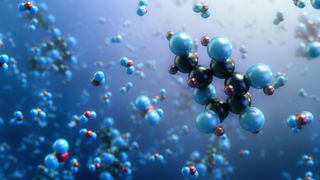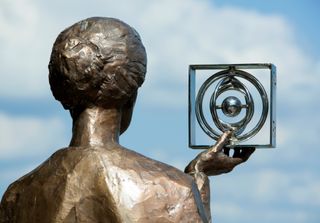Chemistry

Chemistry is the study of matter and what happens when elements and compounds interact with other matter around them. It is a vast but fascinating field of science, and by bringing you the most compelling facts and findings the latest chemistry research has to offer, our expert editors and writers will trigger a chain reaction in your understanding of the central science.
From how scientists solved the mystery behind a 100-year-old chemistry experiment to the discovery of a new, extremely reactive chemical in our atmosphere, Live Science is fizzing to bring you the latest chemistry news, features and articles.
Editor's Picks
Latest about Chemistry

Why does ice float?
By Hannah Loss published
Why does ice float in water, instead of sinking to the bottom? It has to do with water's density and molecular structure.

Building blocks of life may have formed on dust in the cold vacuum of space
By Paul Sutter published
Far from any galaxy, icy grains of dust in deep space may be able to form organic molecules, a new preprint study finds.

Scientists get rare glimpse of 'nesting doll' isotope nitrogen-9
By Ben Turner published
With five more protons than should be stable, the newly discovered nitrogen-9 isotope sits right on the borderline of physical possibility.

Only 1% of chemicals in the universe have been discovered. Here's how scientists are hunting for the rest.
By Matthew Addicoat published
Most chemical compouds are still unknown to science. How many new ones can we make by combining elements from the periodic table?

Can foxgloves really give you a heart attack?
By Victoria Atkinson published
Foxgloves contain digoxin, a drug used to treat cardiac arrhythmia and heart failure that can also be toxic. But can ingesting it cause a heart attack?

Is hydrogen a metal?
By Hannah Loss published
Hydrogen is not a metal on Earth, but scientists keep trying to create metallic hydrogen under high pressure to unlock a new superconductor.

States of matter: Definition and phases of change
By Mary Bagley last updated
Reference The four fundamental states of matter are solid, liquid, gas and plasma, but there others, such as Bose-Einstein condensates and time crystals, that are man-made.

Nobel Prize in Chemistry: 1901-Present
By Live Science Staff last updated
The Nobel Prize in Chemistry includes famous winners such as Marie Curie and Otto Hahn.
Live Science newsletter
Stay up to date on the latest science news by signing up for our Essentials newsletter.

